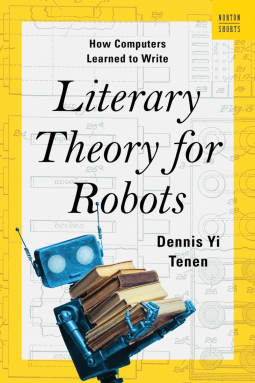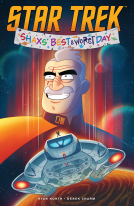
Literary Theory for Robots
How Computers Learned to Write
by Dennis Yi Tenen
This title was previously available on NetGalley and is now archived.
Send NetGalley books directly to your Kindle or Kindle app
1
To read on a Kindle or Kindle app, please add kindle@netgalley.com as an approved email address to receive files in your Amazon account. Click here for step-by-step instructions.
2
Also find your Kindle email address within your Amazon account, and enter it here.
Pub Date 6 Feb 2024 | Archive Date 31 Jan 2024
Talking about this book? Use #LiteraryTheoryforRobots #NetGalley. More hashtag tips!
Description
In the industrial age, automation came for the shoemaker and the seamstress. Today, it has come for the writer, physician, programmer, and attorney.
Literary Theory for Robots reveals the hidden history of modern machine intelligence, taking readers on a spellbinding journey from medieval Arabic philosophy to visions of a universal language, past Hollywood fiction factories and missile defense systems trained on Russian folktales. In this provocative reflection on the shared pasts of literature and computer science, former Microsoft engineer and professor of comparative literature Dennis Yi Tenen provides crucial context for recent developments in AI, which holds important lessons for the future of humans living with smart technology.
Intelligence expressed through technology should not be mistaken for a magical genie, capable of self-directed thought or action. Rather, in highly original and effervescent prose with a generous dose of wit, Yi Tenen asks us to read past the artifice—to better perceive the mechanics of collaborative work. Something as simple as a spell-checker or a grammar-correction tool, embedded in every word-processor, represents the culmination of a shared human effort, spanning centuries.
Smart tools, like dictionaries and grammar books, have always accompanied the act of writing, thinking, and communicating. That these paper machines are now automated does not bring them to life. Nor can we cede agency over the creative process. With its masterful blend of history, technology, and philosophy, Yi Tenen’s work ultimately urges us to view AI as a matter of labor history, celebrating the long-standing cooperation between authors and engineers.
About the Author: Dennis Yi Tenen is an associate professor of English and comparative literature at Columbia University. Originally a software engineer at Microsoft, Tenen is now an affiliate at Columbia's Data Science Institute.
Advance Praise
"Reading this book is like taking a walk in a literary forest. You will see up close trees whose names you never knew and discover paths that lead your mind in new directions. Tenen guides us along the way, by putting in historical context how machines started out as voracious readers and emerged as creative writers." - Jeannette M. Wing, Professor of Computer Science at Columbia University
"Literary Theory for Robots is many things—brainy, chatty, charming, disarming—but, above all, it is great fun to read. Dennis Yi Tenen’s cast of ‘lovely weirdos’ and their wheels, charts, templates, schemas, and links will stay with me for a long time. So will his insistence that intelligence is a social and collective phenomenon, one whose history reveals the human presence behind every machine." - Merve Emre, author of The Personality Brokers: The Strange History of Myers-Briggs and the Birth of Personality Testing
"Literary Theory for Robots serves as an alternative to the breathless utopian or apocalyptic hallucinations of the tech bros funding the AI revolution, instead offering a highly relatable perspective on thinking machines grounded in history, literature, and lived human experience. Tenen shows that truly understanding the future of our digital augmentation depends not on more STEM but on more liberal arts. This book will be remembered as the moment thinking people realized how to raise better robots: read them good stories." - Douglas Rushkoff, author of Survival of the Richest: Escape Fantasies of the Tech Billionaires
Available Editions
| EDITION | Hardcover |
| ISBN | 9780393882186 |
| PRICE | US$22.00 (USD) |
| PAGES | 192 |
Available on NetGalley
Average rating from 3 members
Readers who liked this book also liked:
Ryan North; Derek Charm
Comics & Graphic Novels, Entertainment & Pop Culture, Sci Fi & Fantasy




